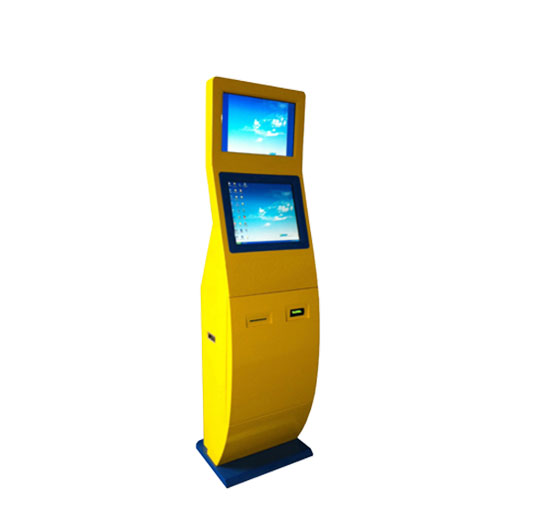In today's fast-paced world, technology has revolutionized various aspects of our lives, including the way we access information and engage with books. Libraries, known for their wealth of knowledge and resources, have also embraced technological advancements to enhance their services. One such innovation that has gained significant popularity is the self-checkout machine. These automated systems offer library patrons a convenient and efficient way to borrow and return books without the need for traditional manual checkouts. In this blog post, we will explore the power of library self-checkout machines and how they streamline library services, benefiting both library staff and users.
Traditional library checkouts often involve long queues and waiting times, especially during peak hours. This not only creates inconvenience for library users but also puts a strain on library staff who need to manage the influx of borrowers. Library self-checkout machines provide a viable solution to this challenge by allowing users to handle the borrowing process independently. With a user-friendly interface and simple instructions, patrons can quickly scan their library cards and the books they wish to borrow, saving valuable time for both themselves and the library staff. This improved efficiency not only enhances the user experience but also enables librarians to focus on other essential tasks, such as assisting users with research or organizing library events.
One of the key advantages of library self checkout machines is the privacy they offer to library users. Traditionally, the borrowing process required patrons to interact directly with librarians, which might have discouraged individuals who preferred a more private experience. Self-checkout machines provide a sense of independence, allowing users to browse the library's collection, select their books, and complete the checkout process on their own terms. This privacy empowers library users, giving them the freedom to explore and borrow materials without any perceived judgment or intrusion. It also encourages a greater sense of ownership and responsibility for their library experience.

By delegating routine checkout tasks to library self-checkout machines, library staff can redirect their attention to more specialized areas of service. With automated book borrowing processes, librarians have the opportunity to focus on providing personalized assistance to patrons, answering queries, and offering guidance for research or reference purposes. This shift in staff responsibilities allows for a more enriching and interactive library environment. Users who require assistance can readily find knowledgeable staff members available to offer support, enhancing the overall quality of service provided by the library.
Accurate inventory management is crucial for any library to efficiently track its collection. Self-checkout machines play a significant role in this regard by reducing errors in book borrowing and return processes. These machines utilize barcode scanning technology, ensuring that the correct books are associated with the respective library accounts. Additionally, they can provide immediate notifications if a book is not properly checked in or if a user attempts to borrow an item that is currently unavailable. This real-time tracking helps librarians maintain accurate records and simplifies inventory management tasks, leading to a more organized and efficient library system.
Library self-checkout machines have revolutionized library services by streamlining the borrowing and return processes, offering numerous benefits to both library staff and users. The improved efficiency and time management provided by these machines enable users to quickly access the books they need while freeing up staff to focus on more specialized assistance. The privacy and independence offered by self-checkout machines empower users to take control of their library experience, fostering a sense of ownership and responsibility. Additionally, these machines contribute to minimizing errors in inventory management, ensuring accurate tracking of the library's collection. As libraries continue to adapt to the digital age, library self-checkout machines stand as a testament to the power of technology in transforming and enhancing our access to knowledge and information.